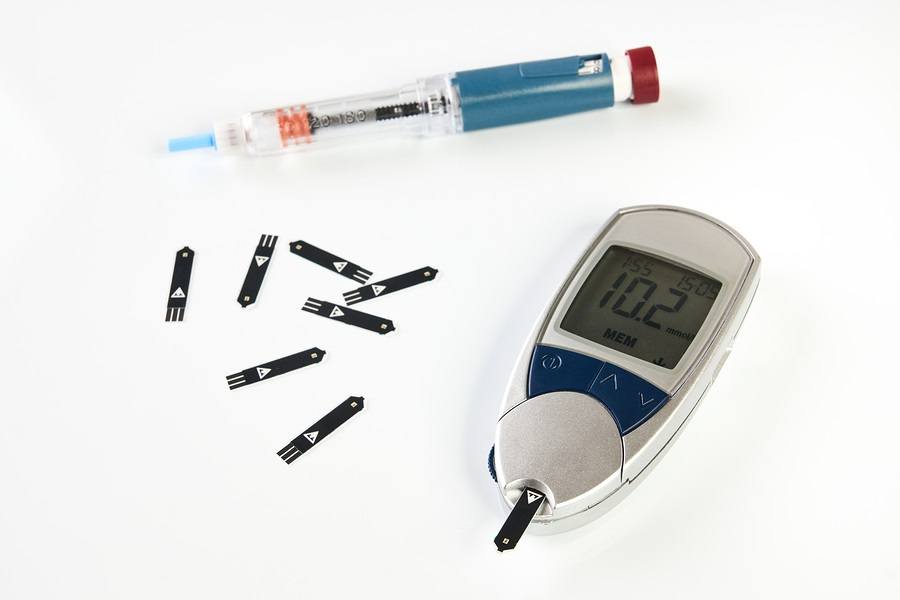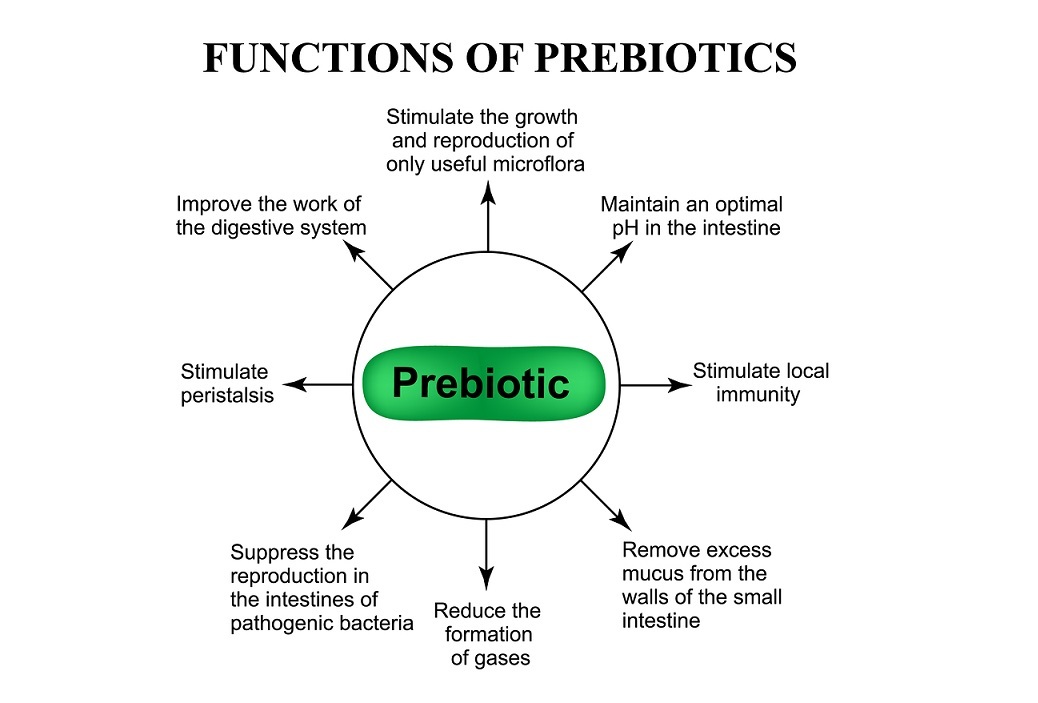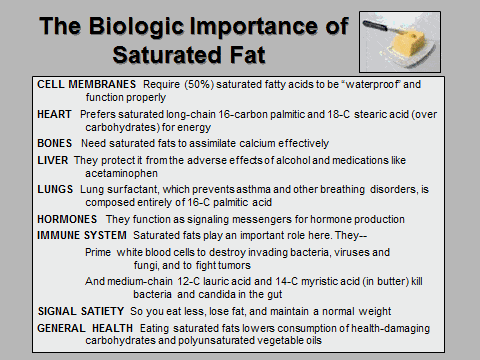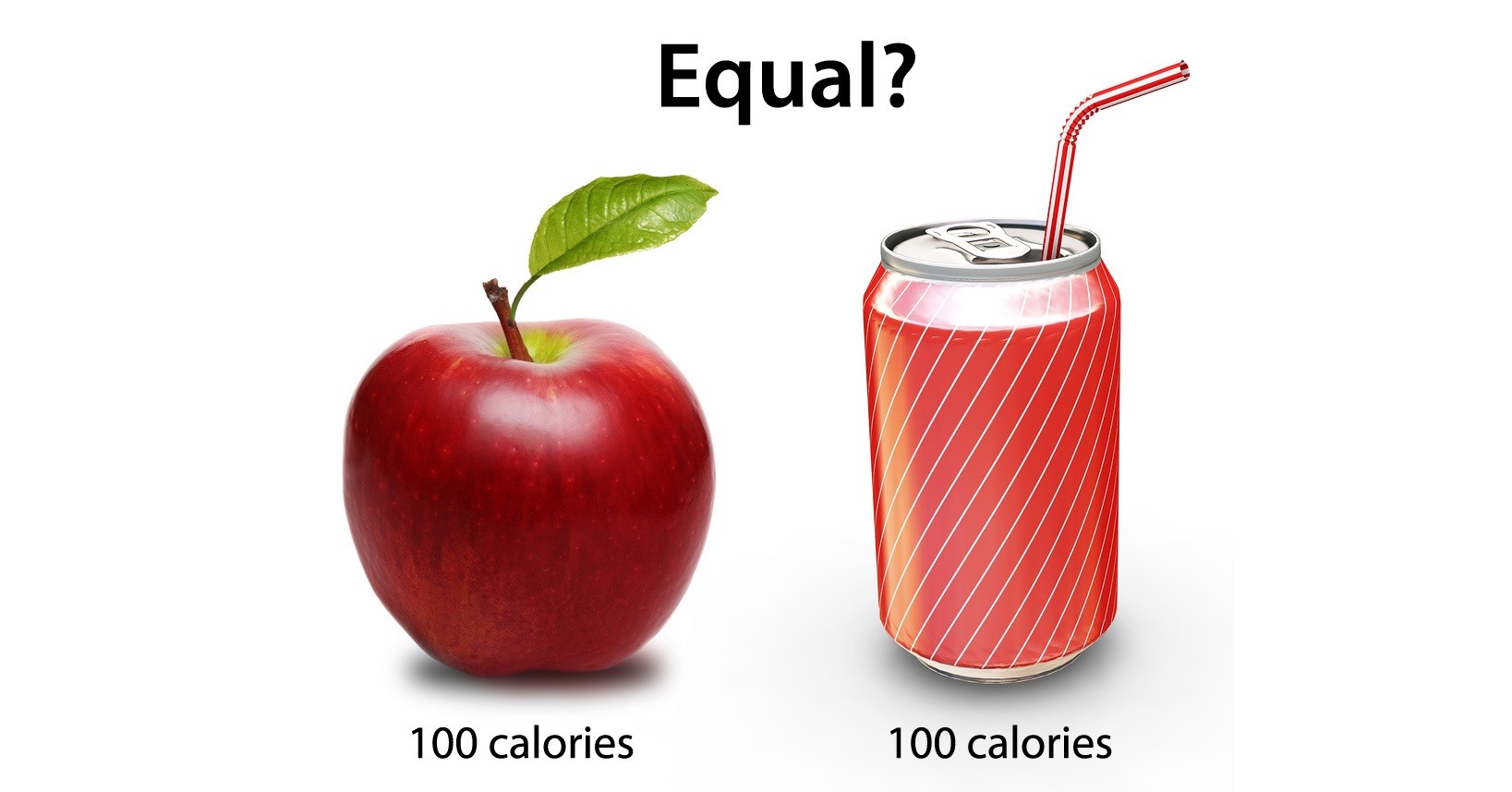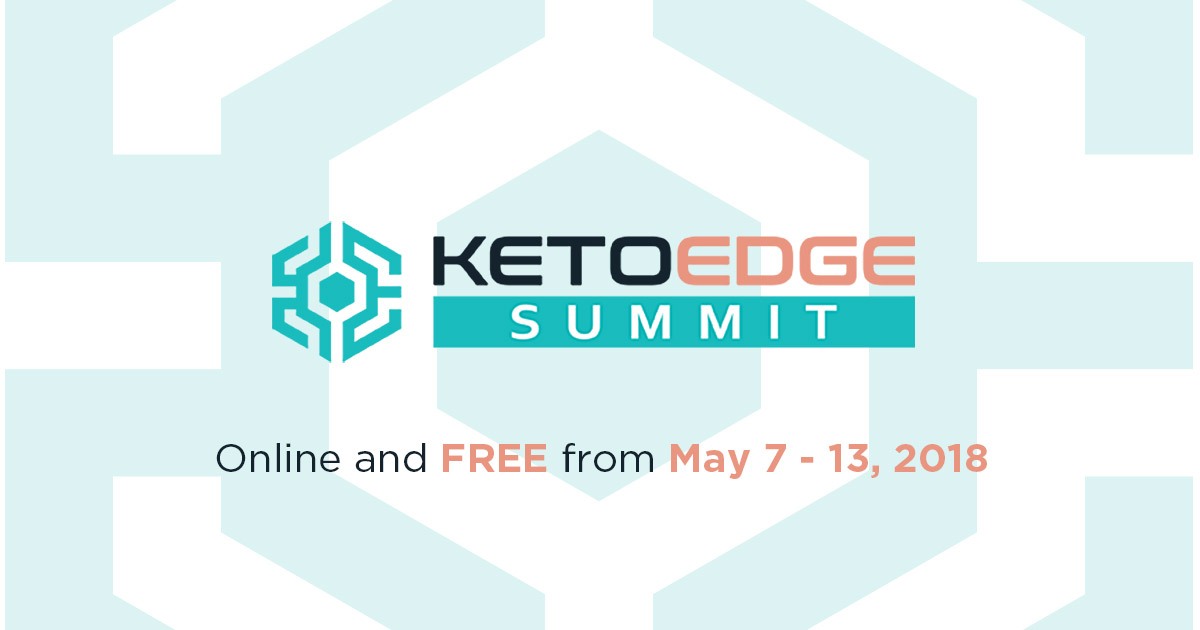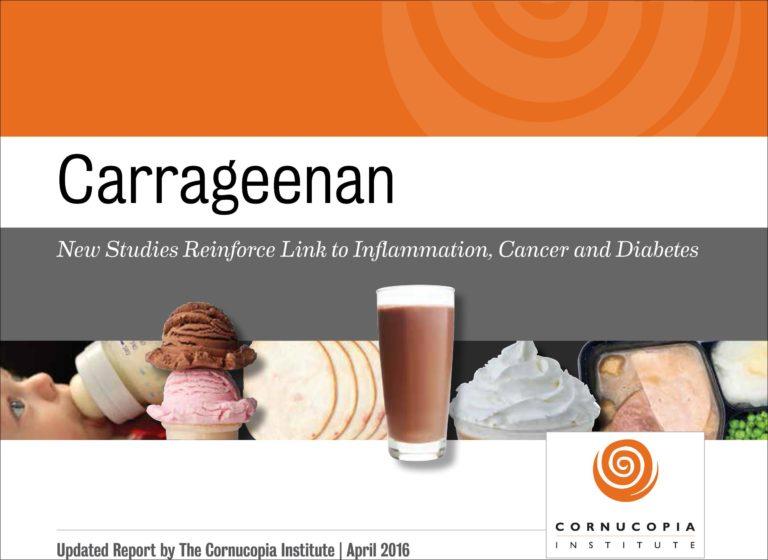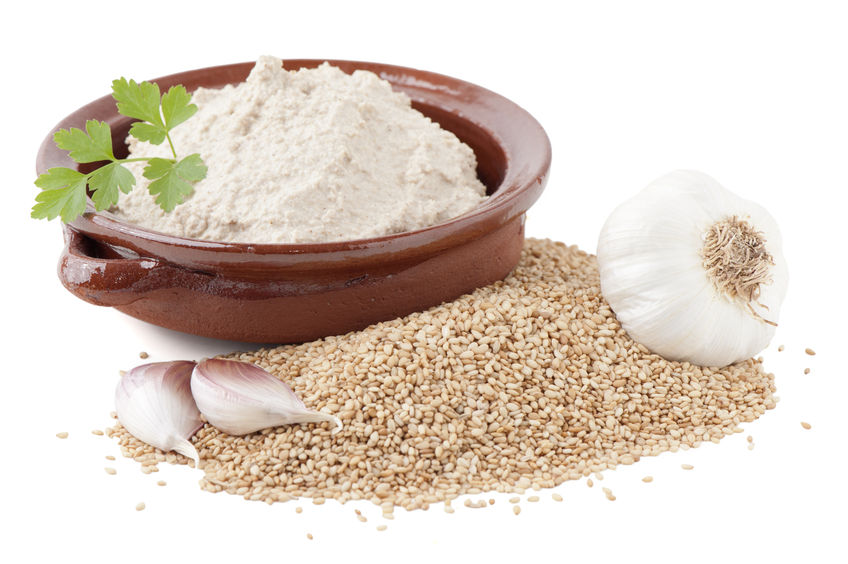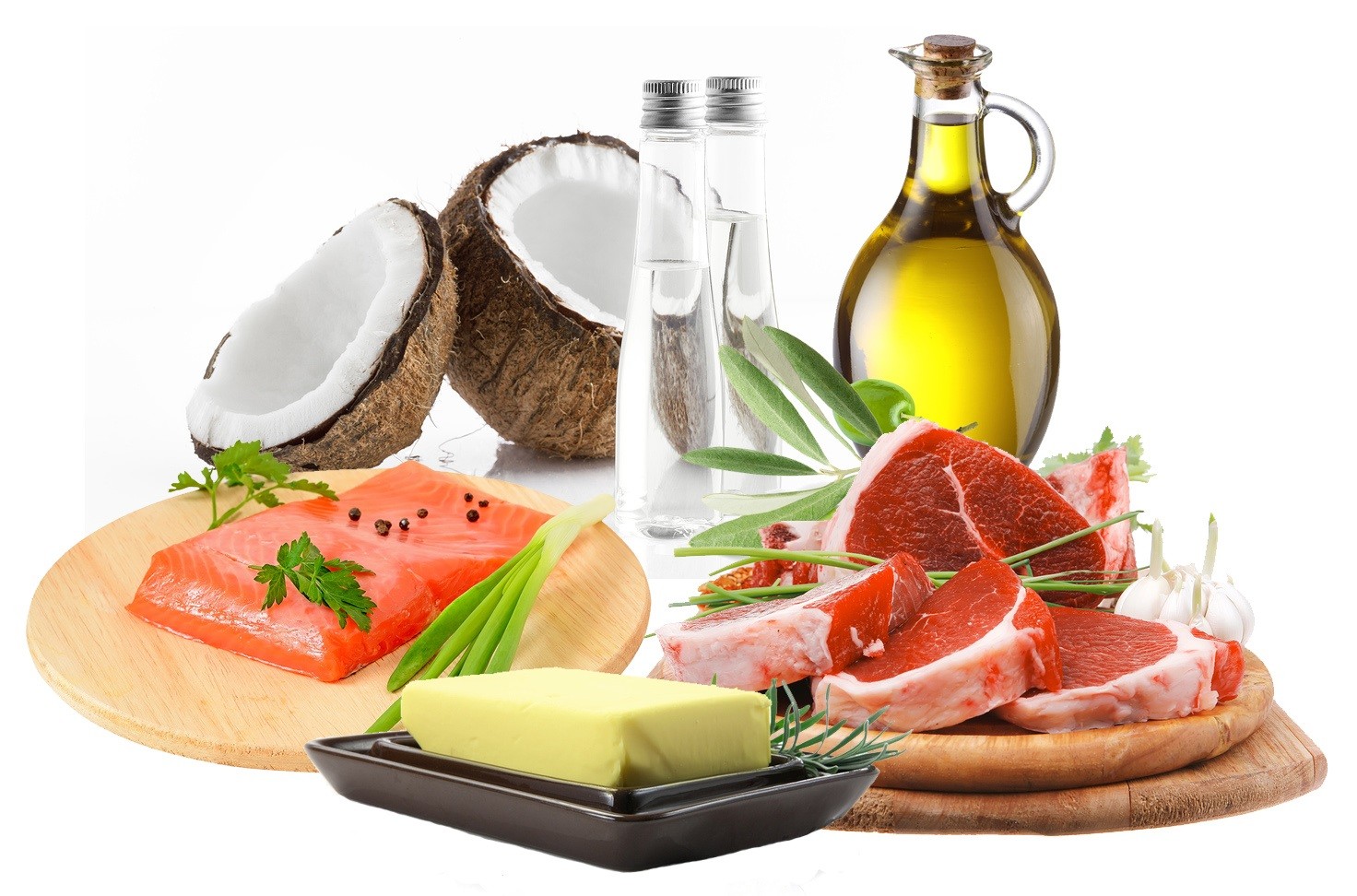News regarding traditional wisdom and native diets regarding nutrition.
#1 Most-read Study of 2018 in the Medical Journal Pediatrics is How a High-Fat Diet can Help Type 1 Diabetes
A recent 2018 online survey of type 1 diabetics or their parents and caregivers has opened the door for others to use the ketogenic high-fat, low-carbohydrate, moderate protein diet to ease the burden of insulin injections and improve the day-to-day life of type 1 diabetics, potentially leading to remission. This was a breakthrough study, as the ketogenic diet has proven itself with diabetes type 2 sufferers, but there has been little looked into with keto for diabetes 1 patients. This study's focus was on serious carb production. Its title is Management of Type 1 Diabetes With a Very Low–Carbohydrate Diet, and it was published by Pediatrics, the "official journal" of the AAP (American Academy of Pediatrics). Dr. Lewis First, chief editor of Pediatrics, provided an article listing the top 10 items published by Pediatrics during 2018. This study was at the top of the list as the most popular article in Pediatrics for 2018.
Do You Know About These Hidden Chemicals in Common Foods?
Recently, the FDA announced that a group of six artificial flavors would no longer be permitted to be used as food additives. They are: synthetically-derived benzophenone, ethyl acrylate, methyl eugenol, myrcene, pulegone, and pyridine. If you’ve never heard of these, you’re not alone. Most Americans are completely unaware of the additives put into their food because the food industry does not need to list the chemicals they use in the ingredients. Instead, the federal government allows these chemicals to be obscured by being listed as “artificial flavors” or “natural flavors.” It’s time to stop letting Big Food and their crony capitalist friends get away with hiding the contents of their products and require them to list the chemicals they use in our food.
American Diabetes Association’s New Recommendations Would Keep Diabetics on Drugs Instead of Curing Diabetes Through Diet
The American Diabetes Association (ADA) just put out a position paper on treating diabetes. It’s focus on treatment and prevention, especially for the increasing incidents of diabetes 2 among youth, demonstrates the willful ignorance of institutions that create medical standards for the medical profession. What is ignored is the potential for treating obesity and diabetes 2 with the high-fat low-carb ketogenic diet, which has proven effective for all the factors leading to diabetes and diabetes 2 itself, even improving the overall health of those afflicted with diabetes 1, the less frequent form of diabetes that requires insulin injections.
Exposing Myths of Dietary Oils: The Omega 3 to Omega 6 Fatty Acid Ratio is Key
Dietary fats can be tricky business, as they're not all the same. While some are necessary for optimal health, others need to be balanced and some need to be avoided altogether, and understanding which is which is quite crucial, considering how important fats are for optimal health. Unfortunately, many health authorities have insisted omega-6-rich vegetable oils are healthier than saturated animal fats such as butter and lard, and this myth has been a tough one to dismantle, despite the evidence against it. Here, I will review some of the basics, including the importance of balancing your omega-3 and omega-6 intake, and why replacing saturated animal fats with omega-6-rich vegetable oils is such a bad idea.
Raw Milk Vending Machines Flourish in Europe
Would you love to visit a grass fed family farm where you can fill up a glass bottle with farm-fresh raw milk from a vending machine explicitly made for this purpose? In the U.K., this is not at all unusual. In fact, raw milk vending machines are becoming increasingly popular, including the one recently installed at Home Farm, a dairy farm in Hassop, England. In its first two weeks of operation, the farm owners say the machine has been a huge success and received “incredible” customer feedback. Known as the Simply Milk machine, it’s refilled every morning and provides fresh chilled milk from 7 a.m. to 7 p.m. In stark contrast, while many Europeans are free to enjoy a glass of crisp raw milk anytime they like courtesy of self-serve vending machines, in North America selling raw milk is often forbidden. In Canada, for instance, it’s illegal to sell or give away raw milk, a law that’s enforced in many provinces. Ultimately, the choice of what to eat should belong to the individual consumer, not the state or federal government. If government agencies are allowed to impose their view of "safe food" on consumers, and dictate what’s legal and what’s not, raw milk won't be the only thing lost — one day virtually all food could be pasteurized, irradiated and/or genetically engineered.
High Fat Ketogenic Diet Successful in Treating Adult Epilepsy, Brain Tumors, and Alzheimers
A new review published in August 2018, in the Journal Brain Sciences looked at the effectiveness of the ketogenic diet to treat adult epilepsy, adult malignant glioma (brain tumors), and Alzheimer’s disease. It was written by Tanya J. W. McDonald and Mackenzie C. Cervenka from the Department of Neurology, Johns Hopkins University School of Medicine. The review is titled "The Expanding Role of Ketogenic Diets in Adult Neurological Disorders." The aim of the review is to describe the evidence, preclinical and clinical, supporting Ketogenic Diet use in the management of adult epilepsy, adult malignant gliomas (brain tumors), and Alzheimer’s disease. Several randomized controlled trials support the use of Ketogenic Diets for the treatment of drug-resistant epilepsy and there is emerging evidence that these diets are also effective in treating refractory status epilepticus, malignant glioma and Alzheimer’s disease in adults.
Why Probiotics May Often Not Be Enough for Healthy Microbiomes: The Necessity of Prebiotics Like Resistant Starch
One of the latest nutritional discoveries that only recently began gaining good press and widespread awareness is something called resistant starch, or sometimes known as safe starch. This is a food quality, and it’s not relegated to one food - several different foods fall into this category. Resistant starch has been studied with increasing awareness of its ability to serve as a prebiotic, a fermentation fiber food source for friendly bacteria in the intestinal or gut flora. The results of an enhanced microbiome, in turn, lead to greater immunity to disease and improved overall health. Several different carbohydrate plant foods contain resistant starch. And some are enhanced with resistant starch by cooling after cooking. If it were not for the increased awareness of the microbiome’s friendly bacteria content and function over the past couple of decades, this resistant starch research information would probably still be under the radar of nutritional health awareness.
Why Coconut Oil, or Any Saturated Fat, Cannot Raise Cholesterol Levels (LDL levels)
Scottish medical doctor, Malcolm Kendrick, has just written a brilliant expose on his blog explaining, scientifically, why it is impossible for saturated fats to raise LDL cholesterol levels. As I have written many times over the years, this is the kind of information that can save your life and help you make wise dietary choices, but it is information that the U.S. government, Big Pharma, and the corporate-sponsored "mainstream" media cannot afford to publish. Because to do so would be to admit guilt in one of the biggest medical scams of all time: the lipid theory of heart disease. This theory, which has been proven scientifically to be false, has been an economic success for cholesterol-lowering statin medical drugs, the most profitable class of medical drugs all time. This theory also promotes the low-fat diet which encourages consumption of carbohydrates from U.S. subsidized crops, as well as polyunsaturated oil, also derived from U.S. subsidized crops. This theory of heart disease, which condemns cholesterol and saturated fat, has probably been responsible for many millions of people's early deaths and the life-long suffering of autoimmune diseases for an entire generation.
Why Fish Is the Ultimate Superfood
You’ve heard fish is good for you. But a new study shows that eating fish is better than first realized: It seems to be a factor that raises the odds of becoming pregnant, not only because couples who included fish on the menu had sex more often, but because they also conceived more quickly compared to people who had something else for dinner instead. The lead study author, Audrey J. Gaskins, a research associate at Harvard, speculates that seafood might improve semen quality and egg release for ovulation. People have been eating fish since the dawn of man. It’s been a staple for humankind in every area where fish can swim and has without a doubt been one of the foods that has kept humans alive, but now we can see in many more ways than offering mere sustenance.
Are Red Meats Really Carcinogenic?
A recent World Health Organization (WHO) report has reported that red meats are carcinogenic. There was an immediate fear-based reaction from some mainstream media outlets. The London based daily tabloid The Mirror headlined an article with “No amount of alcohol, sausage or bacon is safe according to cancer experts.” There were other similar headlines throughout the UK. The Guardian, a UK newspaper, was even more outrageous: “Yes, bacon really is killing us.” The Guardian’s take on the UK media reaction was that Britain’s diet is big on bacon, sausage, and sliced ham lunch meats, and therefore unhealthy. The WHO report was made by World Cancer Research Fund (WCRF) as part of its Continuous Update Project (CUP), which updates results of international cancer researchers every few years. However, their research did not discriminate, analyze, or explain the differences among the meat and processed meat options that are available. It’s well known that epidemiologists who put out dietary surveys don’t ask the types of questions that indicate whether one consumes junk food meats, processed meats, or meats from free-range grass-fed and/or organic-fed animals without antibiotics or growth hormone injections. So we’ll do that instead in this article.
Study: People Eating Eggs Have Less Risk for Heart Disease
A new study, published by the BMJ (British Medical Journal) in May 2018, found that people consuming eggs regularly were less at risk for heart disease than those who consumed no eggs. The title of the Chinese study is Associations of egg consumption with cardiovascular disease in a cohort study of 0.5 million Chinese adults. Over a half-million Chinese, between the ages of 30 and 79, were recruited across various regions of China and surveyed for egg consumption. Those with histories of cancer, heart disease, stroke, or diabetes were excluded from the study. Those remaining, slightly under a half-million, were followed for several years to determine incidents of cardiovascular disease (CVD) and both ischemic and hemorrhagic strokes. The average egg consumption varied from none to over one a day. The study’s conclusion: "Our findings suggested that daily egg consumption (<1 egg) [actually .8 daily on average] was associated with lower risk of CVD [cardiovascular disease], IHD [ischemic heart disease], MCE [major coronary events], hemorrhagic stroke and ischaemic stroke among Chinese middle-aged adults. Our findings contribute scientific evidence to the dietary guidelines with regard to egg consumption for the healthy Chinese adult." The study noted that morbidity from strokes is higher in China than Western nations where deaths from ischemic heart disease (ISD) are higher. An average egg consumption of .8 could translate to five to six eggs per week. The Chinese study also referenced an earlier smaller Japanese study, the Life Span Study in Japan, and found that “daily egg consumption was associated with a 30% lower risk of total stroke mortality” compared to no or occasional consumption of eggs.
The Nutritional Calorie Theory for Weight-loss Benefits the Soft Drink Industry – Not Consumer’s Health
A new study has been published questioning the validity of counting food calories as an indicator of health and obesity. 22 researchers from around the world agreed that the theory stating a "calorie is a calorie," no matter what the food source, is not a theory backed by science. An enduring dietary dogma has been the emphasis on calories, even to the extent of calorie counting one’s food intake and comparing the food’s caloric values as provided by tables of calorie measurements according to food types and amounts as an indicator of whether or not a food is healthy. This theory of food nutrition lacks scientific merit, similar to the saturated fat dogma/cholesterol dogma which has been contradicted by real science. It benefits the soft drink industry, which would like everyone to believe that calories from their highly processed drinks are no different than calories from fruits and vegetables.
The High-fat Ketogenic Diet for Cognitive Health: Proven Remedies for the Alzheimer’s Epidemic
The failure of Big Pharma to develop an Alzheimer's drug has been well-documented in the corporate-sponsored "mainstream" media. As Alzheimer's diagnoses continue to increase, drug companies are scrambling to develop the next big drug to market to seniors. In modern times, the most successful drugs in sales, so far, have been cholesterol-lowering statin drugs, as one out of every five people over the age of 50 are now taking drugs to lower one's cholesterol, raking in billions of dollars for pharmaceutical companies. The sick irony to this is that lowering one's cholesterol artificially is directly linked to declining cognitive health and diseases such as Alzheimer's, since 25% of one's total cholesterol is located in the brain. The failed scientific hypothesis behind these drugs is that cholesterol is a cause of heart disease, and that diets high in saturated fats contribute to high cholesterol. However, the actual science shows almost the opposite, and when one looks at death rates, for example, lower cholesterol rates do not equate to longer life - in fact the converse is true: higher cholesterol levels lead to longer life spans. The pharmaceutical industry and the U.S. government cannot afford to reverse their warnings against saturated fats and cholesterol, however, as it would be the same as confessing that the entire statin drug industry has been a scam, and that statin drugs actually cause more harm than good. This is the main reason why the USDA must continue supporting a low-fat diet and condemning saturated fats, even though the science does not support their positions. It is no surprise, therefore, to learn that peer-reviewed scientific studies continue to show that the high-fat ketogenic diet supports cognitive health and can help prevent or reduce cognitive diseases such as Alzheimer's. Here are four new studies just published on the high-fat ketogenic diet related to cognitive health, and preventing Alzheimer's Disease.
The FREE Online Keto Edge Summit: Leverage the Power of KETONES to Return to Health
“Keto” is one of the MOST SEARCHED words on the internet today, and for good reason. Ketones help you burn fat for energy, powerfully reduce inflammation and show promise in preventing and eradicating diabetes, cancer, autoimmune and neurodegenerative diseases like Alzheimer’s and Parkinson’s, and many, many other health concerns. The Keto Edge Summit is online and FREE from May 7-13, 2018. During The Keto Edge Summit, you’ll discover: What is ketosis (and how does it work)? Myths, and how to separate fact from fiction! How to overcome the challenges of being “keto adapted.” Whether you should start a keto diet (or not!). How to shop, live and eat on a ketogenic lifestyle. And more! Your host, Dr. David Jockers, overcame skin cancer in part by switching to a ketogenic diet. Within 6 months of diagnosis, his cancerous nodule had vanished — and, he gained significantly more energy and mental clarity. Now, he teaches patients how a ketogenic lifestyle can give them the edge to conquer disease, return to health and upgrade quality of life.
Carrageenan Approved by USDA for use in Organics in Spite of Links to Intestinal Inflammation, Cancer and Diabetes
A highly controversial natural food substance, carrageenan, a seaweed derivative used in conventional, “natural,” and some organic foods, was just reapproved by USDA Secretary Sonny Perdue. This move overrides the recommendation of the National Organic Standards Board, an expert industry panel set up by Congress. After hearing from medical and scientific experts describing carrageenan’s link to intestinal inflammation, cancer, and other human health risks, the NOSB voted to remove carrageenan from the list of approved synthetic and non-organic substances for use in organic food production. In a move unprecedented during the last quarter century of organic industry rulemaking, the USDA ignored the NOSB vote in the Federal Register without an opportunity for the public to comment on their decision before it goes into effect. “This is the latest instance of the Trump/Purdue administration siding with powerful agribusiness interests. They are running roughshod over the will of Congress that established the NOSB as a buffer to insulate organic regulations from corrupt corporate lobbyists,” said Mark A. Kastel, Senior Farm Policy Analyst at The Cornucopia Institute, a Wisconsin-based nonprofit that acts as an organic industry watchdog.
Laboratory Manufactured Meat and Eggs: The Future of Food?
A controversial plant-based meat and egg manufacturer’s products are touted as the eventual answer to large scale factory farming that focuses on livestock for most of the population’s meat, eggs, and dairy products. This company is one of the leaders in the current trend of vegan lab produced meats, eggs, and cheese. The high-tech food start-up company Hampton Creek, now renamed JUST, and its CEO Josh Tetrick, and its financial backers with Bill Gates among them, see this as the future of food. This seems appropriate for the globalist corporate food agenda, as Gates sees GMOs as the future of food as well, and he owns a half-million shares of Monsanto stock, valued at $23 million in 2013. JUST's mission statement of providing plant based meats and eggs to prevent the slaughter of farm animals and its inherent large scale ecological damage also implies a future of genetically engineered meat products created in laboratores. “Tetrick explained how, rather than slaughtering a chicken, scientists could extract stem cells from a bird’s fallen feather and grow them into muscle cells.” Reducing factory farmed livestock foods is a noble and worthy aspiration. But are lab created meats, eggs, and cheeses really healthy options?
Bone Broth for Wound Healing
The top food for wound healing is soup, not readymade supermarket canned or packaged soups, but old-fashioned homemade bone broth. A South American proverb claims “Good broth will resurrect the dead.” Although that is surely an exaggeration, soup has a longstanding reputation for nourishing convalescents.
Evidence-Based Medical Research is Discovering Sesame Seeds’ Health Benefits
Sesame seeds are generally regarded as nutritionally inconsequential ornamental additions to bread and bagels or incorporated in culinary presentations to add visual interest and subtle flavor nuances, especially with Chinese cuisine. As is the case with most medicinal foods, consuming small quantities of sesame seeds often over time is recommended to help improve health and resist disease. Sesame seeds are high in calories, which scares some calorie counters away. But it only takes a small amount, around a quarter-cup daily of these inexpensive nutritionally dense seeds, to receive sesame seeds’ health benefits and protection against many autoimmune diseases. The medicinal aspects of sesame seeds were used by ancient cultures thousands of years ago. During the last twenty years or so, western medical research has been discovering valid clinical applications of sesame seeds and their compounds. One way to get more sesame seed into one's diet is to utilize the "nut butter" form, tahini, used in popular Asian and Middle-Eastern foods such as hummus.
Scottish Doctor Wants World to Know What is Happening to South African Doctor Being Attacked for High Fat Diet Advice
We have covered the story of Dr. Tim Noakes previously here on Health Impact News. Dr. Noakes has been attacked for giving dietary advice that does not conform with government-approved nutrition standards. Dr. Noakes is one of those scientists that have come to understand the politics behind dietary advice, which often results in poor health for those who follow it. Dr. Noakes believes in a low carb high fat diet. The reason government nutrition advice will not endorse this diet, is because to do so would be to admit that the lipid theory of disease, that saturated fats cause high cholesterol which leads to heart disease, is false, and this would destroy several very profitable businesses, including pharmaceutical drugs designed to lower cholesterol levels (statin drugs). Dr. Malcolm Kendrick is one of the leading dissenting voices world-wide on the failed lipid theory of heart disease, and he wants the whole world to know what is happening to Tim Noakes in Africa, and sign a petition for him.
Public Being Misled by U.S. Government and Corporate Media About What Constitutes the Best Diet
Dieter beware: U.S. News & World Report, in its high-profile January cover story on "best diets," calls the DASH and Mediterranean diets tops for health, though these regimens represent the failed nutritional status quo of the last 50 years. It's clear that U.S. News — which employed an expert panel to rate 40 diets on various criteria — merely recapitulated questionable dietary advice that has gone by a succession of names since the 1970s — "low-fat," "DASH," "USDA-style," "plant-based." The basic set of recommendations have remained the same, emphasizing plant foods (grains, cereals, fruits and vegetables) over animal products (eggs, regular dairy, meat), and vegetable oils over natural animal fats such as butter. According to government data, Americans have largely followed these recommendations over the last 50 years, notably increasing their consumption of grains, vegetables and fruits and eating less whole milk, butter, meat and eggs. The outcome? In that time, rates of obesity and Type 2 diabetes have skyrocketed. Something has gone terribly wrong. Why would 25 doctors, dietitians and nutritionists on the U.S. News panel choose a dietary philosophy that has — so far, at least — failed us?






